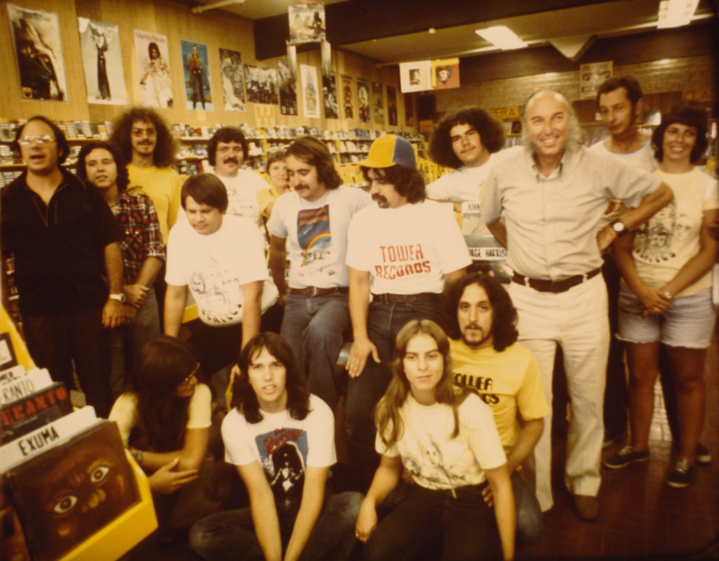
One of the economic lessons I found striking in the documentary “All Things Must Pass” was the room for career growth within Tower Records. Many of the former employees interviewed for the film said they started at Tower as store clerks in the 1960s because they could keep their alternative hairstyles and wear whatever they wanted. But they also learned some things about how to run a successful business. And as the company grew, its founder, Russ Solomon, rewarded frontline employees who helped make that growth possible by promoting from within. By the 1990s, the C-suite of Tower Records almost completely comprised employees who had started at the bottom.
Google “CEOs who started at the bottom” and you’ll find countless articles highlighting other success stories. Chris Rondeau, CEO of Planet Fitness, started his career working as a clerk at the front desk of the now-national gym franchise’s first location in 1993. David Abney, who was CEO of UPS from 2014 to 2020, started as a part-time truck loader in the 1970s.
But Matthew Bidwell, a professor of management at the Wharton School, said these examples aren’t the norm.
“It’s not completely unheard of, obviously, but it’s not the most common career path,” Bidwell said.
Starting at the bottom requires aspiring executives to advance through as many as seven rungs of management. It reflects what Adam Davidson, co-founder of NPR’s “Planet Money,” once described as “meritocratic capitalism,” the idea that those who work the hardest will be rewarded.
But when you look at just how few top-level managers there are, you can easily see why the odds are stacked against lower-level workers. Bidwell has called career employment “a bit of a caricature” that has held true for middle-aged white men more than for younger people, women and people of color.

The benefits of internal promotion are well-documented. Research shows a company that grows its own talent can see greater productivity, more buy-in from employees and better retention rates. Employees are happier when they believe their boss could do their job. Bidwell also notes it can be cheaper to promote an internal candidate than hire someone from outside the organization.
A commitment to promote from within can also be a recruiting tool. Companies like Chipotle and Trader Joe’s say they regularly bring workers up the ranks, which is all the more important when the labor market is tight.
“At the moment, if you’re working in fast food, the big headache you have is making sure that every morning there are enough people showing up in your stores to be able to open up,” said Bidwell. “And if one of the things [a company tells employees] is, ‘Stay here long enough, do a good job and you can rise up into jobs with more responsibility, more status and more pay,’ that’s one useful thing to both recruit people and get them to stick around.”
– David
How to watch this month’s film
“All Things Must Pass” is available to watch for free on YouTube. It’s also streaming on several platforms, including Kanopy and Hoopla for some library card holders, and on Peacock, PlutoTV and Popcornflix, for free. A digital streaming copy can be rented or bought on several platforms, and if you want a physical copy, you can purchase the film as a DVD and Blu-ray too.
Want other recommendations? Check out all the films selected for Econ Extra Credit on our website.
What was the first album or single you remember buying?
As the Econ Extra Credit team brainstormed about this month’s documentary, we reminisced about the first physical piece of music we remember purchasing. We plan to share those in a future newsletter along with a playlist. And we’d love to know what your first album or single was too.
Share it with us by sending us a note at extracredit@marketplace.org.
There’s a lot happening in the world. Through it all, Marketplace is here for you.
You rely on Marketplace to break down the world’s events and tell you how it affects you in a fact-based, approachable way. We rely on your financial support to keep making that possible.
Your donation today powers the independent journalism that you rely on. For just $5/month, you can help sustain Marketplace so we can keep reporting on the things that matter to you.












